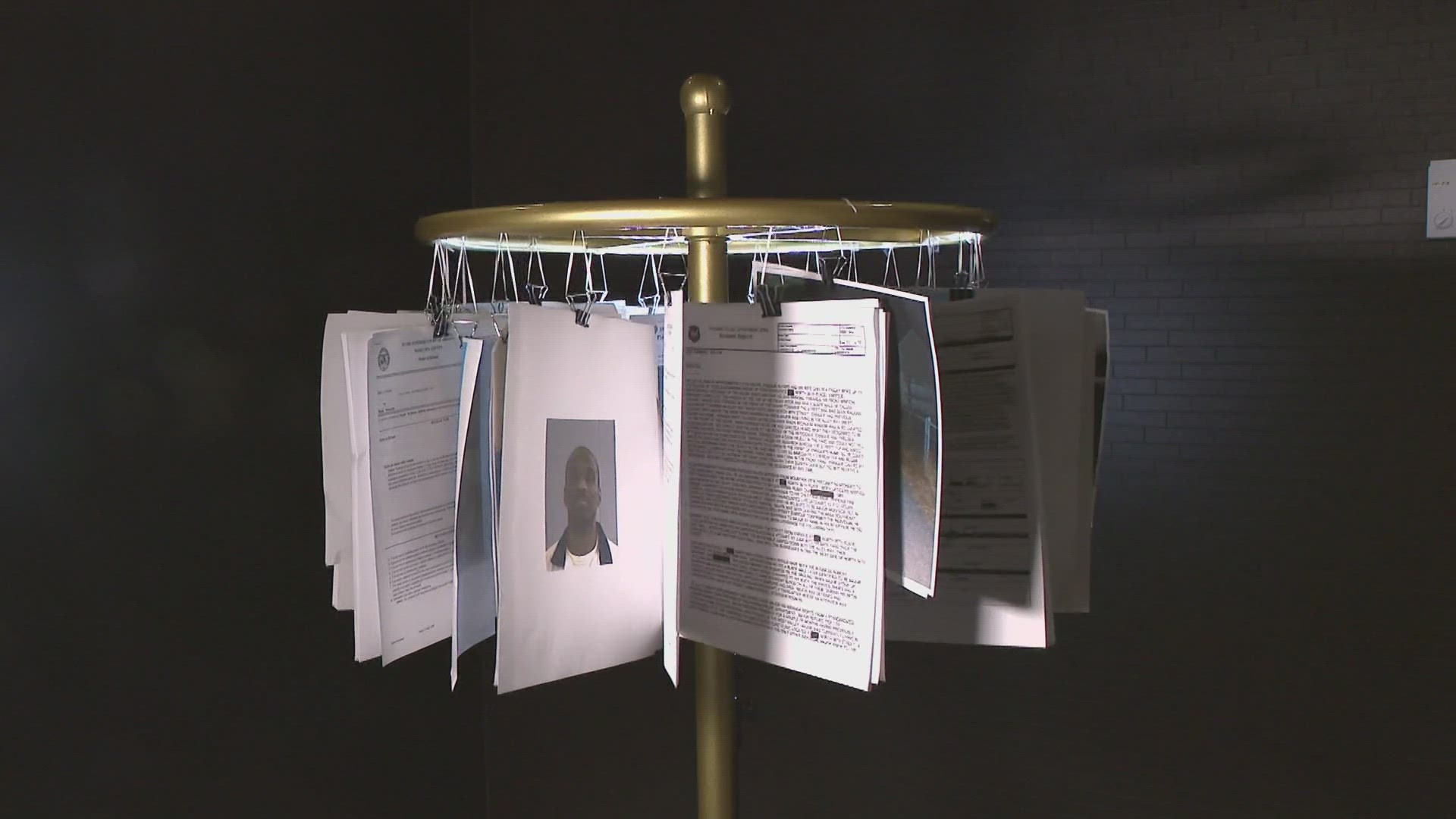PHOENIX — Charges filed, defendant found incompetent, case dismissed – only to have the charges re-filed. It’s a cycle the I-Team uncovered in a Phoenix double murder case that's gone in circles in court for years.
Suspect Major McKenzie was first charged with two counts of murder in 2020. Since then, the charges have been dismissed twice after he was found incompetent to stand trial and the judge denied prosecutors' requests for forced medication.
McKenzie has now been arrested a third time.
"Is it possible for a case to get stuck like this forever?" asked the I-Team's Erica Stapleton.
"Yes," said Maricopa County Attorney Rachel Mitchell. "This is not a decision on our part to not proceed. This is something that the system is telling us that we cannot proceed. So, it’s frustrating for us."
McKenzie, who has a history of serious mental illness, pleaded not guilty to the charges when this case first went to court in 2020. Then, he was found incompetent to stand trial and refused to take medication while in jail. The state filed a request to force McKenzie to take medication to restore his competency and move the case forward toward trial.
The request for forced mediation leads to what's called a Sell hearing, which is pretty rare. MCAO said they've had these hearings for 19 defendants since 2018, in the context of tens of thousands of defendants their office sees each year.
It's up to a judge to determine whether to grant the request. The name "Sell" is derived from a Supreme Court case, Sell v. United States, where the Justices looked at whether a government can administer antipsychotic medication involuntarily to a mentally ill criminal defendant to make the defendant competent for trial.
Under that ruling, a judge can grant forced medication, but only if prosecutors can satisfy certain criteria. In Arizona, the criteria are laid out in court paperwork:
- important governmental interests are at stake
- involuntary medication will significantly further those concomitant state interests
- involuntary medication is necessary to further the interest and any less intrusive alternative is unlikely to achieve the same results
- medically appropriate for the defendant
In McKenzie's case, the judge denied the request for forced medication. He said, by law, he felt he had to select the least intrusive option for McKenzie. Under Arizona’s Title 36, he ordered McKenzie to Valleywise for a psychiatric evaluation and dismissed the charges in the case with prejudice, meaning they may be re-filed again.
At Valleywise, records show McKenzie complied with treatment and was able to be released less than two weeks later. He was immediately re-arrested for the murder charges.
When the case was filed a second time, it seemed like it could go in a different direction. Initially, McKenzie was found competent and his defense indicated they wanted to pursue a Guilty Except Insane defense.
But then, McKenzie was found incompetent, and could no longer pursue any defense or continue in the case. A defendant has to be competent to make any plea or pursue a defense.
The state asked the judge again to force him to take medication. Again, the judge dismissed the case and ordered McKenzie to Valleywise.
The frustration was clear in McKenzie's second Sell hearing. The prosecutor, defense attorney and judge all indicated they felt stuck in the cycle. Questions were raised about whether there needed to be changes in the law.
"Under the law, there is discretion to rule that they don’t have to go through this," County Attorney Mitchell said. "So if the legislature wanted to take a look at that, that’s one thing. But it’s certainly frustrating for victims who feel like nothing is going to happen in their case."
Advocates are trying to tackle another side of this: the gaps in mental health care.
McKenzie had a long, documented history of serious mental illness and records obtained by the I-Team show he was supposed to be getting help before the murders. Instead, he wound up on the streets.
"It becomes a revolving door," McKenzie's sister told the I-Team. "The hospitalizations. The prison system. Revolving door. Because there’s no real services that are consistent in between."
McKenzie's sister, who asked we conceal her identity because she works in healthcare, told us that her family tried for years to get him help. Still, they weren't kept in the loop.
"This is how we’re dealing with mental health," she said. "Either we have them on the street. Who in their right mind wants to be out on the streets? Outside of that, put them in jail and in prison. That’s what our tax dollars are going towards."
RELATED: His mom thought he was at a behavioral health hospital. Instead, he was dead at a Phoenix bus stop
The "revolving door" is a frustration and failure for many families who have a loved one with an SMI, or serious mental illness.
This year, there's a renewed push for mental healthcare reform in Arizona. It's led, in part, by a group called Mad Moms. Some of the bills before the legislature this session include enhancements to court-ordered treatment and outpatient care as well as high-security residential facilities for people with the most severe symptoms and proposed changes at the state psychiatric hospital.
"We can do better," McKenzie's sister said.
McKenzie was re-arrested and charged with the murders for a third time in 2023. He pleaded not guilty again and the case is set to go to trial in April 2024.

